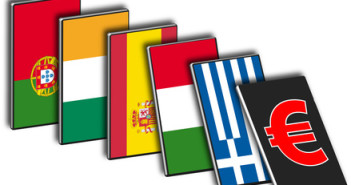One of the options for the highly anticipated move by Draghi is that the ECB will buy bonds after Spain makes more cuts, especially in education and health. with Germany’s approval. This has been in discussions according to a recent report.
While Spain may also officially ask for a bailout and receive it, skipping an official request has big advantages for Spain and the ECB. But it doesn’t have an advantage over the German democratic process.
The ECB lowers interest rates, but long term yields remain high in specific countries. So, in order to better transmit its policy, it may use unconventional steps to do so. This is the jargon used by the ECB in previous moves.
In addition, the ECB has a mandate to reach price stability and financial stability, and may therefore go for a full QE program – printing money US / UK style.
This isn’t music to the conservative Bundesbank that fears inflation and rejects QE. It also sounds like debt monetization – forbidden in the Lisbon Treaty. Nevertheless, the ECB can lean on the other legal articles aforementioned.
Bad for Karlsruhe, good for the ECB and Spain
A bigger issues for the German public is that such a move, if it happens with a German nod, bypasses the German constitutional court. The court is set to rule on the legality of the ESM bailout fund on September 12th. This is supposed to remain the only tool used to bail out troubled countries via loans, and not via the central bank.
Using “transmission of monetary policy” to empty the court’s decision will not go well in Germany.
However, a swift move by Draghi will not give enough time for anyone to stop it. Draghi could “just do it, and let the lawyers argue about it later”.
The move has clear advantages for Spanish politicians, who will get to keep their promises about not taking a full bailout.
Further reading: may therefore go for a full QE program
